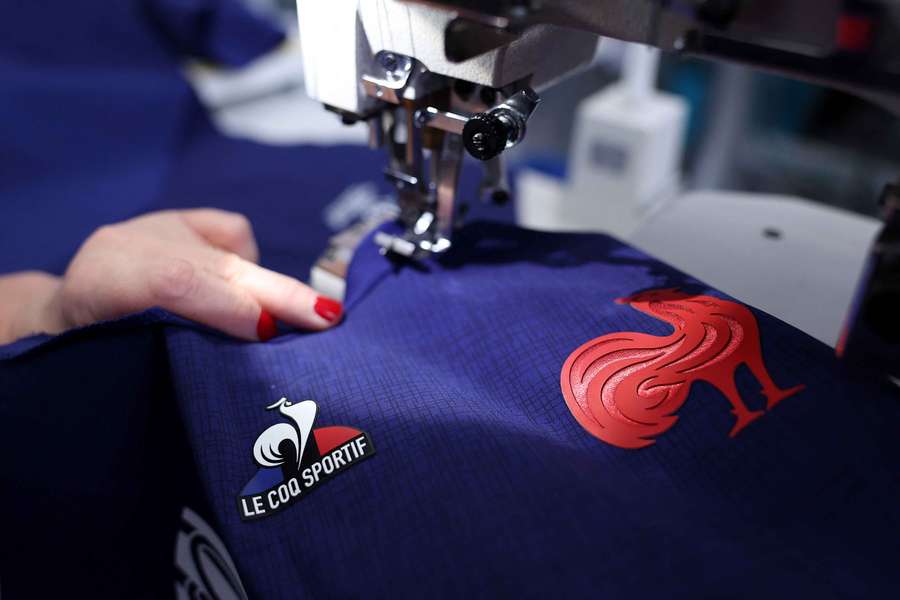French rugby federation sues troubled sports brand Le Coq Sportif

Federation chairman Florian Gill told AFP his organisation would ask for the liquidation of the loss-making group which is majority-owned by Swiss holding company Airesis.
Known for its cockerel logo that has adorned the shirts of French sports teams for more than a century, Le Coq had a prominent role as a supplier during this summer's Paris Olympics.
But its financial problems led it to borrow emergency funds in May from the Paris 2024 organising committee and it took a 10-million-euro (£8.4m) state-backed loan at the start of last year as its losses widened.
The French Rugby Federation is claiming 5.3 million euros in unpaid dues and interest stemming from a shirt sponsorship deal it had with the group until recently.
"We've done several restructuring plans for the Coq Sportif debt," Gill told AFP. "None of these plans have been respected and we've got to a point where we've asking for a court-ordered liquidation."
A hearing has been set at the Paris commercial court on September 27.
Manufacturing delays for Le Coq Sportif shirts and equipment caused concern ahead of the Paris Olympics, with some sports federations left sweating about whether deliveries would arrive in time for the start of the Games.
Marc-Henri Beausire, Le Coq sportif CEO, told the BFM news channel on Wednesday that the group had been struggling with its footwear range over the last few years which had led to losses.
"Today all categories are going extremely well," he said, adding that clothing sales were up by 20-30 percent since the Olympics in July and August. "We're expecting even more in 2025."
The company's heyday was in the 1950s to 1970s, which helped forge a retro image that appeals to its fans.
It manufactured the first yellow jerseys for the Tour de France, made the shirts for the legendary Ajax football team of the 1970s, as well as the Argentinian team starring Diego Maradona that won the 1986 World Cup.
After enduring decades of financial problems from the 1990s, it was taken over by Airesis in 2005. It lost 28.25 million euros (£23.8) last year, according to its latest accounts.

